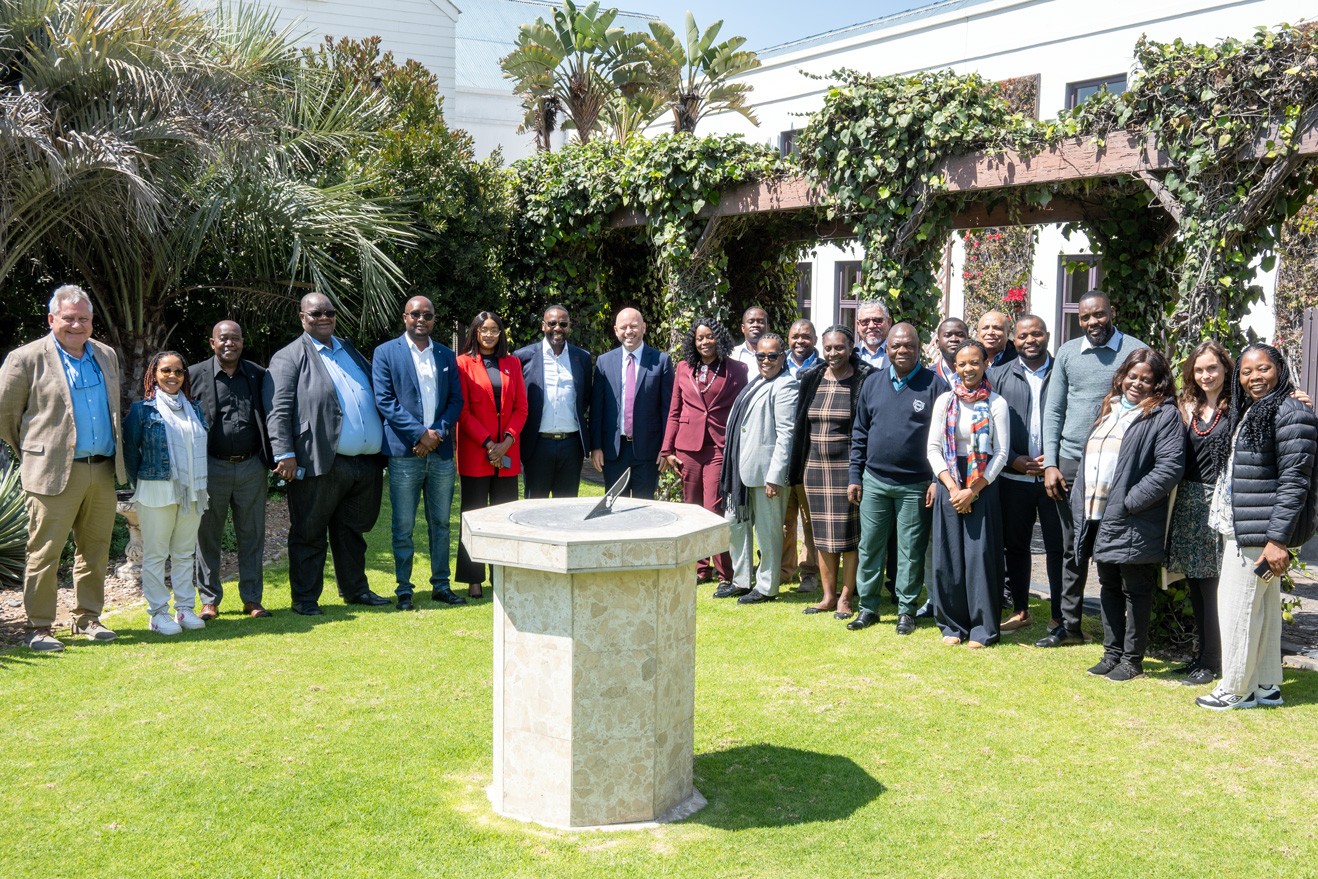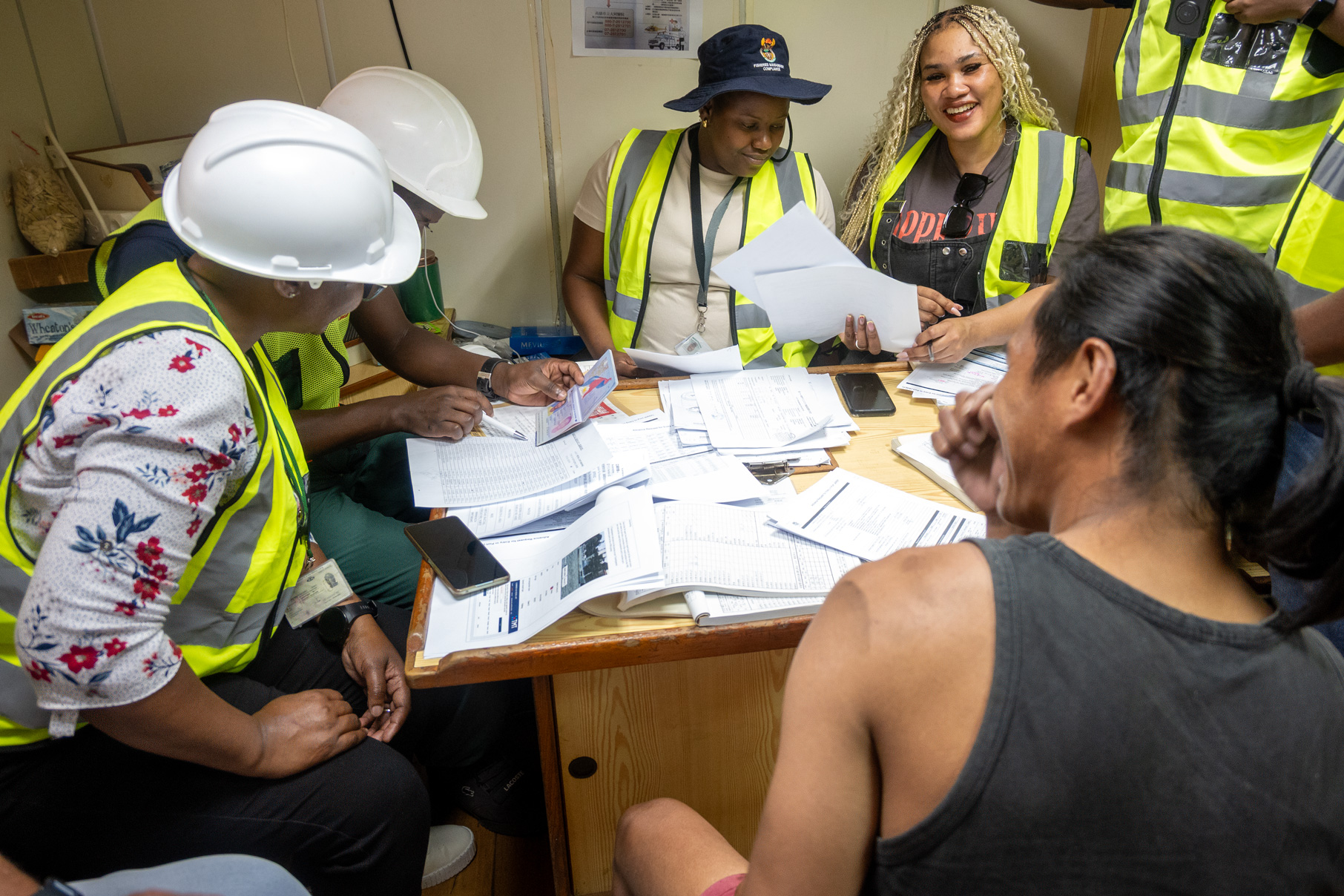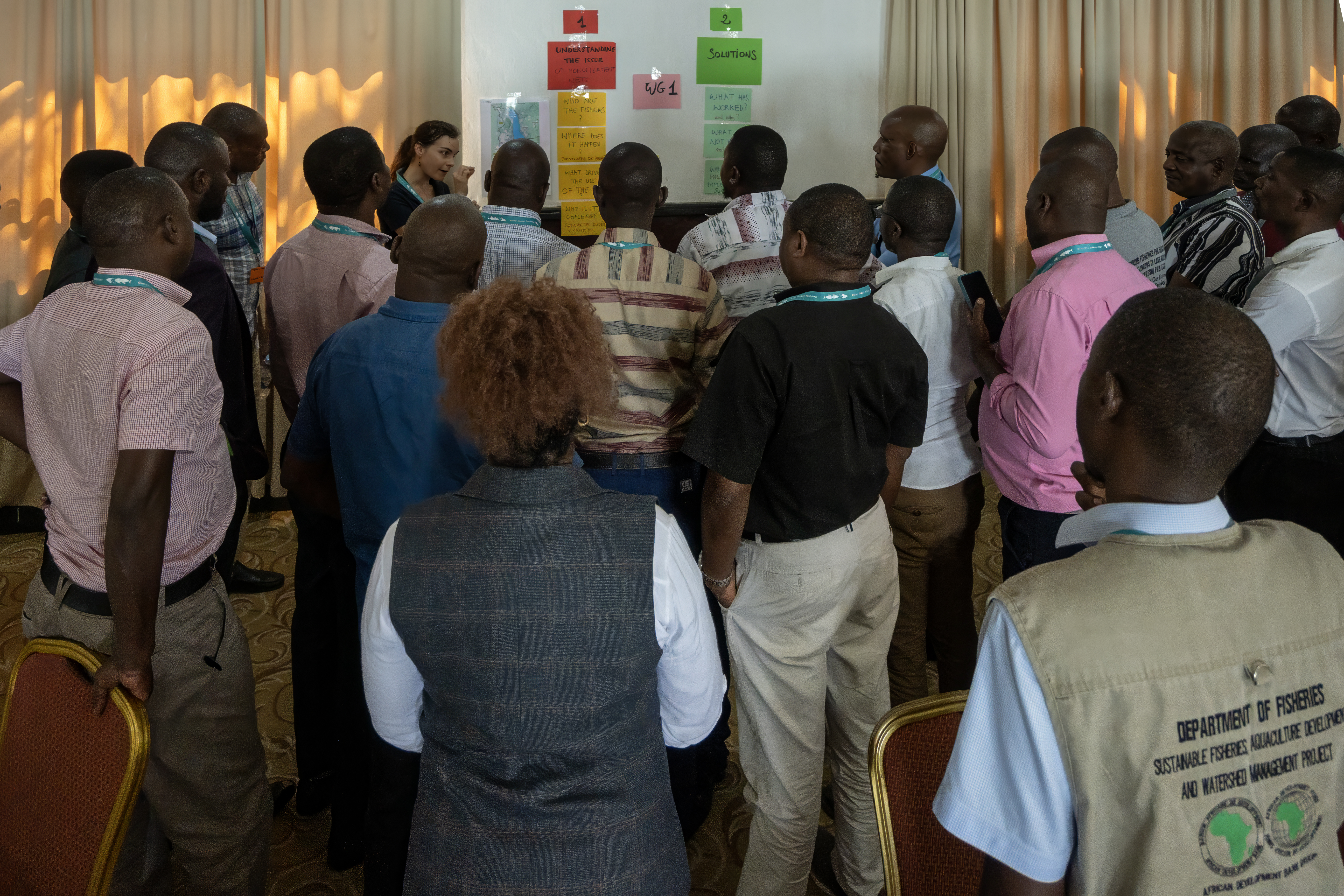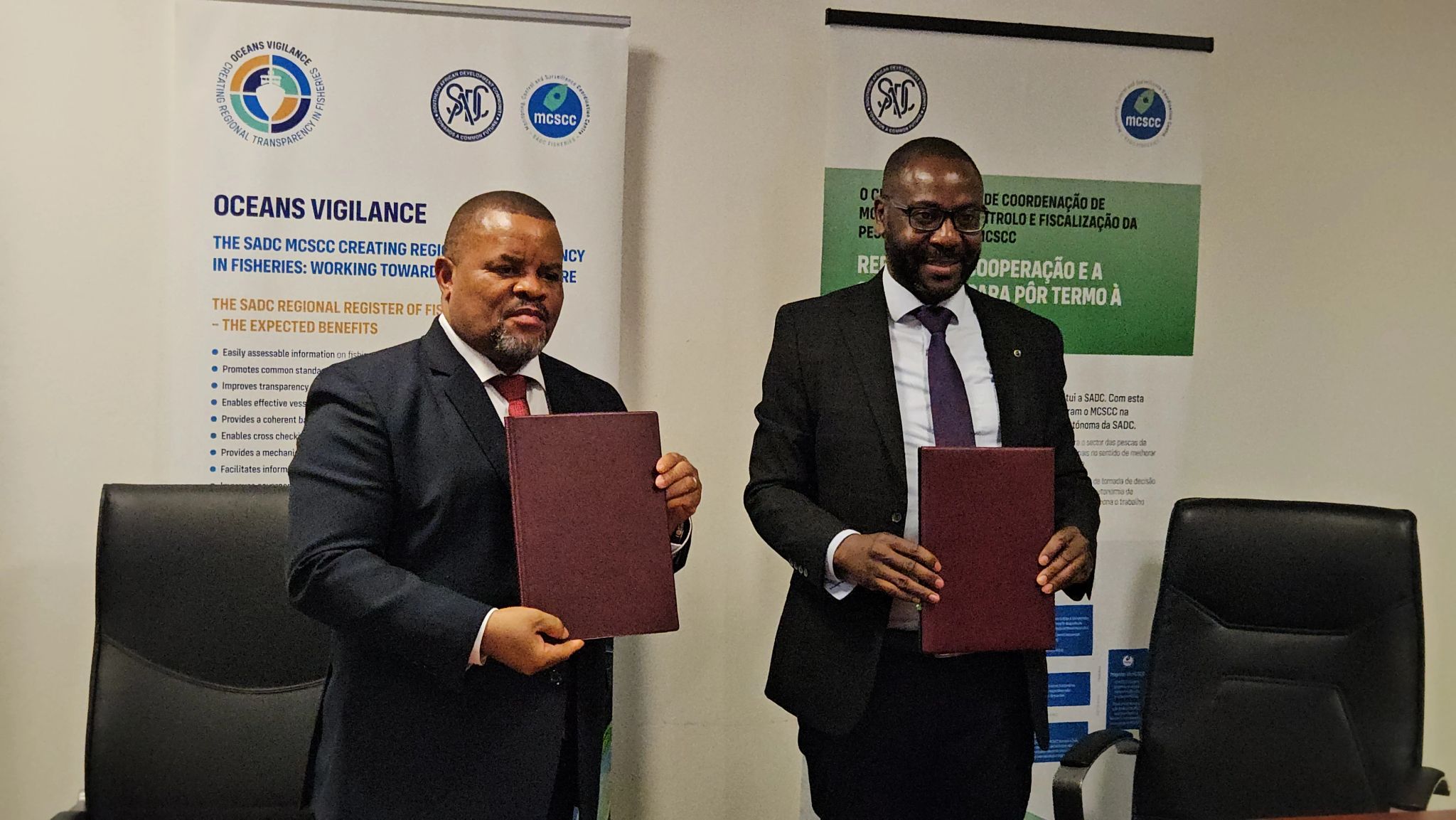SADC ATLANTIC Working Group makes recommendations on key functions of the MCSCC
Walvis Bay, Namibia – 15-16 September 2025

On 15-16 September 2025, Namibia hosted the final risk assessment Working Group meeting of the SADC ATLANTIC Project in Walvis Bay. This Working Group offered an opportunity for MCS officials from Angola and Namibia to share their experiences in applying the risk assessment matrix promoted during the Project, with the goal of advancing harmonised risk assessment procedures across the Southern African Development Community (SADC) region through the Monitoring, Control and Surveillance Coordination Centre (MCSCC). It also served as a platform to reflect on lessons learnt from the SADC ATLANTIC Project and to discuss the way forward. The Working Group concluded with key recommendations to advance implementation of key functions of the SADC MCSCC, which will be presented at the next meeting of the MCSCC Operational Task Force.
Since 2022, the SADC MCSCC, together with the Benguela Current Convention (BCC) countries – Angola, Namibia and South Africa – have been working in partnership with Stop Illegal Fishing (SIF) to implement the SADC ATLANTIC Project. The Project was funded by the United States Department from September 2022 to September 2025.
This collaboration has demonstrated that risk-based procedures can effectively assess whether foreign fishing vessels have been involved in illegal activities. Where risks have been identified, access to ports or port services have been delayed until an inspection was conducted. These procedures are built on shared standards, information exchange and strong regional cooperation through the MCSCC.
The systematic and indicator-based risk assessment matrix promoted during the Project has helped national MCS officers become more confident in the conduct of their work. In total, 290 risk assessments were conducted since September 2022 for fishing vessels calling into port. The Project was also used to strengthen the integration of the three BCC countries into SADC-wide regional cooperation through the MCSCC, empowering them to share information about fishing vessel activities, which fed into national risk assessments. SADC ATLANTIC has significantly deepened the engagement of countries in the MCSCC. As a result, the countries have taken more robust action against illegal, unreported and unregulated (IUU) fishing, including issuing fines, delaying port access, and conducting targeted inspections – some of which have been supported by regional and international partners.
“IUU fishing is complex”, said Manuel Bengui Tungo, Head of the Department of Information and Monitoring of fishing activities in Luanda, Angola. “Angola is strongly committed to combatting IUU fishing, but fishing operations are complex and our EEZ is vast to monitor. SADC ATLANTIC brought us tools that are helping us build our MCS capacity. Exchange of information on fishing vessels with Namibia and South Africa, as well as with other SADC countries through the MCSCC, has also helped us become more aware about the importance of regional cooperation to detect illegal operators.”
The aim of the Working Group was to capitalise on the learnings and the achievements of SADC ATLANTIC at national and regional levels, to recommend the use of the risk assessment methodology as a regional tool implemented by the MCSCC.
During the meeting, Angola’s and Namibia’s MCS officers brought together their experience to fine tune a common methodology for risk assessment prior to granting port access, licence and registration to fishing vessels, which will be presented at the next MCSCC Operational Task Force, scheduled for October 2025.
“The risk assessment matrix is a strong tool to help us combat IUU fishing. But to be fully effective, we need all countries in the region to implement it”, said Beau M. Tjizoo, Deputy Director for MCS at Namibia’s Ministry of Agriculture, Fisheries, Water and Land Reform.
“The more information we share on fishing vessels, the more the countries will become involved”, said Malcolm Block, Chief Control Fisheries Inspector for Monitoring, Control and Surveillance in Walvis Bay, Namibia, as he called on all the countries in the region to make full use of the MCSCC communication platform.
Through this recommendation, the countries are contributing to the development of the Regional Register of Fishing Vessels (RRFV), a key function of the MCSCC. More than just a list, it is envisioned that the RRFV will serve as a comprehensive compliance and oversight tool coordinated by the MCSCC, underpinned by harmonised minimum standards. It has been agreed that fishing vessels must be listed in the RRFV before they are allowed into the region’s waters.
“IUU fishing is a threat to food security in our countries. If we understand the risks that are associated with any vessel that intends to fish in our waters, we can be proactive in ensuring that these vessels do not come into our waters”, said Dr. Stanley Ndara, the Chairperson of the MCSCC Board of Directors.
Already in early 2025, the SADC Atlantic initiative provided the analysis and evidence needed to support the development of the Code for the Establishment and Implementation of the SADC RRFV – known as the MCSCC RRFV Code, which was adopted by Ministers in charge of fisheries in May 2025. By recommending a regionally harmonised risk assessment tool, the SADC ATLANTIC countries are now contributing to implementing the RRFV Code, giving the region further tools to monitor authorised fishing vessels and addressing IUU fishing.
For more updates, stay tuned on our website and social channels.


